If you read my ‘impressions’ of the demo version of ArcaniA, you know that even though I pre-ordered the game I had several hesitations about the potential for the game to be any good, and even more reservations about it being a ‘good Gothic game’. Having now completed the game as both a mage and a warrior, I’m ready to render my verdict on both counts …
The Hype:
Arcania is a Fantasy Action game set in a rich world that invites the player to explore all of its innumerable attractions and details. Different climate zones, abundant flora and fauna, subterranean vaults, and cities and castles with unique architecture await the adventurous player. Clouds darken the skies, weather effects such as wind and heavy rain influence the game world which remains endlessly fascinating with its amazing graphics, day and night cycles, and a stunning display of light and shadow.
* Day Night / Weather Cycle: a unique environment model with dynamic and controllable weather system and day night cycle
* Layered Armor and Crafting System: allows the player to design and forge the equipment they use in-game.
* Mounts Abilities: Not just your average beasts of burden, the mounts in Arcania provide different advantages to the various gameplay mechanics.
* Time of day, season and the day of year all impact NPC routines and reactions, creating a world that is dynamic and realistic.
* Offers a gradual learning curve that evolves into a complex multi opponent model that strives to break free from the button mashing system in other games!
The Reality:
You might want to get a fresh cup of coffee … this is going to be a long one!
Getting started and Options
Before you start with he actual game you can configure loads of things. Most of it is the usual stuff like video and audio options and controls. I always appreciate when a game allows you to personalize, but aside from setting video to maximum and enabling subtitles everywhere, I left most of that stuff alone.
The other options include a number of gameplay items focused around what you see as you play. Will you get a mini-map? A Quest compass? Damage numbers floating out of enemies heads? Exclamation marks over quest-givers and bulls-eyes on maps for their location? ‘Role-playing items’ (more on that later)? There are a bunch of options – and it is up to you to decide whether or not to have them displayed. Since there were more than a few times I wandered aimlessly in Gothic 3 … I was pretty liberal with enabling many of the visual cues.
There is another option that I don’t really even know how to explain or justify – you can choose ‘North American’ or ‘European’ color schemes. Not light or dark, not ‘bloom’ or ‘gritty’ … ‘North American’ or ‘European’. The North American theme is brighter with more bloom effects, apparently to appease ‘eye candy’ centric North American audiences … though I found it quite patronizing. Interestingly I thought the North American theme made the game look more like (German made) Drakensang and the European theme looked more like (Canadian made) Dragon Age!
Graphics
As I said in my demo impressions, the game looks very good visually, and if you check out the screens throughout this review you will see how nice of a job Spellforce did in creating a world that is full of varied areas that all look good – fields, stark rocky areas, frozen tundras, bleak mountains, bustling cities, small villages, jungles, beaches, dungeons, mines and so on.
They also created a ton of characters to sprinkle throughout the world. Some are generic folks like ‘peasant’ or ‘guard’, some are monsters or otherwise enhanced beasts, and some are old friends you know from prior Gothic games.
Your old friends have all aged, and are much more detailed than in the older games, but most are instantly recognizable. Diego, who as I mentioned in the demo impressions you meet very early, looks nearly identical to earlier incarnations, while some others bear only a passing resemblance but the overall characterization of the returning characters is solid.
There are perhaps a dozen monster models in the game, from the smallest creatures in the demo area to the most massive and dangerous beasts you will meet. Yet there are probably four dozen named monsters – and that is because they look largely the same but have different attributes and take on a new name. More on that in later sections.
The NPC models are detailed and realistic for the most part. The bodies are shaped correctly and move in a believable way. There are two major issues. First, all of the female faces just look odd and unrealistic and unattractive – and not just some but ALL of them. There is a distinct contrast compared to male faces. Speaking of males, there are only about five different models, repeated throughout the game in different clothing and occasionally different hair or helmets. It is particularly jarring when you see a few identical models in the same area – and when you have dealings with more than one you are looking for the dialogue option ‘yeah, I just spoke with your twin brother about that issue’!
Music & Voice Acting
As I mentioned, the compositional tasks moved from KaiRo to Tilman Sillescu for ArcaniA. I will credit Sillescu with effort – he has tried to integrate the sound and feel of earlier Gothic games while bringing something new. As I say, I applaud the effort, but the end result sounds like the same basic ‘epic high fantasy’ stuff with a slightly ‘Gothic-esque’ tinge. Reason #1 to play the game muted.
But on the audio front the soundtrack is the best news. Ambient noises feel like stock sounds, there is too little sound activity for such a large world, and your weapons sound like they are either hitting wood or metal depending on the enemy. Reason #2 to play the game muted.
The worst offender is the voice acting. I know this is an English translation of a German game, but it IS possible for this stuff to work! I will discuss the impact of the writing on this effect, but regardless of that there is no excuse for acting that varies wildly between semi-comatose and over-the-top melodrama, with every trope of bad over-acting in between! Reason #3 to play the game muted.
But the reason you DON’T want to play the game muted? So you can hear enemies approaching in the dungeons and woods and other places where you could otherwise get surprised.
Dialogue and Writing
“At least the vegetables will profit”. This is an ‘incidental’ line uttered literally hundreds of times by random NPCs throughout the game. The first time it actually made sense – the person was a farmer, and there was a supply blockade. But hearing it in the midst of a city slum area, in a village over-run with undead, and from characters hidden away in blockaded houses avoiding attacking forces? Just plain silly. Yet it is one of only a few canned lines the townsfolk say over and over again.
As for the rest of the dialogue, I think back to earlier Gothic games where you could almost feel the translation going on as you read the dialogue. The difference? What they said was interesting!
As an example, in Gothic 2 you had the whole Constantine quest line with colorful dialogue, where you felt like you were gaining camaraderie with certain characters by helping out. You didn’t have to do the quest, which required specific actions, patience and really making an effort to pursue. The actual in-game reward for the Constantine quest was pretty trivial, so doing it or not was purely a role-playing choice.
ArcaniA’s dialogue is all either for the purpose of directly advancing a quest, trading goods or occasionally giving background information when you enter a new area. That is it. Sometimes there is extra information provided during dialogue, but there isn’t a single frivolous non-quest like Constantine in the entirety of ArcaniA.
It might seem I belabored the content at the expense of quality, but that was the point – all dialogue is function-first. Most people you talk to have either a generic non-personality or a generic over-the-top personality, reflected in what they say as much as how they say it. No one without a ‘name’ has anything to say of value, and by the end of the game you will remember only a very few characters at all … and that is because they are the same ones you’ve been dealing with for nearly a decade of Gothic games!
Story and Quests
One of the most important things in a role-playing game is to make you care about the plight of your hero. ArcaniA sets up a revenge motive at the end of the first area, on the island of Feshyr just past where the demo ended (though some stuff in that area is handled differently now and it lasts longer as a result), but even then I don’t think that you are naturally invested enough to care about the plight of anyone you have met. The game simply asks you to go along with the supposition that you DO care and are willing to sacrifice everything to seek revenge since you have lost all that mattered.
OK, I will pause for a moment to address the potential outrage at the fact that I just revealed a serious ‘spoiler’: if you are playing an epic fantasy RPG where you meet an existing love interest 30 seconds into the game and find out within a few minutes that your early tasks are around becoming engaged and a bit later discover that she is pregnant … do you honestly think this situation can be allowed to persist? Sorry, she was doomed … and as such you never invest in the relationship.
So you travel with Diego to Argaan in pursuit of revenge and adventure, and he promptly dumps you on the shore and splits after giving you some quick insight. So you head to the nearby tavern … and are promptly greeted with some fetch quests! A ‘Fetch Quest’ is any quest whose entire arc is you going somewhere and gathering up some article for someone and returning it to that person for a reward of gold / experience / items / information. In general the boundaries between a simple fetch quest and a more complex quest is when advanced combat is directly required to complete the quest or other high-level skills are involved. Fetch quest is also a generally negative term analogous to ‘busy work’. If you have to get 10 flowers from twenty yards away, fetch quest … if you need to defeat an entire clan of Goblins including their Chieftain to bring back a highly valuable relic, that is still a fetch quest, but much more entertaining.
Every role-playing game has fetch quests, and generally making progress with the main quest involves doing fetch quests in order to get someone to give you some important information or item so you can advance the story. But I cannot think of a single game where just about every quest in the game boiled down to either a fetch quest or a single task with several embedded fetch quests. For example, to get out of the first area, you need to get a single item. But getting that item requires gathering two different items. And to get to the point where you find out what those items were you needed to have gathered up some other items. Fetch upon fetch upon fetch. It is like a busy work factorial!
Back to the story … well, it is hard to say much without major ‘spoilers’, but there is a reason for that: after that chat on the shore with Diego you push along from mandatory area to mandatory area doing menial tasks for all sorts of people before being allowed into the next mandatory area to do more menial tasks. And then suddenly BAM the story smacks you in the face like a baseball bat … you are meeting races you probably didn’t know unless you read all of the dreadfully boring dialogue text in detail, and suddenly you are on the ‘road to the end game’ and wondering where the satisfying ‘mid-game’ went.
I will discuss what I mean by the expectation of a satisfying ‘mid-game’ in detail later on … but as a player you go from zero to ‘chosen one’ in no time flat and then simply follow the bouncing tropes right through the end. You are forgiven if you did NOT read everything in detail going through the majority of the game. The core story is fraught with non-Gothicisms, elements torn out of the ‘Fantasy Story Cliche Volume 1’ manual, and the side-quests often are either filled with contextual holes or just plain make no sense at all. Even those things could be forgiven if there was some payoff in terms of satisfying quest structure or engaging end game … but none of that happens.
One final thing on the story relates to the characters: while we see old friends, there is nothing new to learn about them, no story arc for any of them, nothing aside from picking a simplistic representation of them from earlier games and using it like a hammer on all of their actions. New characters actually fare worse. I remembered a total of three: one you meet early on for a quest, one you happen upon, and one who is thrust upon you. You have to interact with all three, but none of it matters much … nor do you care.
Combat – The Combat System
The Gothic series has a tradition of combat that boils down to: everyone learns melee. In the same way that at a music school everyone needs to learn enough piano skills to be able to communicate effectively in musical language, in Gothic you need to learn enough melee skills to ensure that when you run out of mana or arrows you won’t be instantly killed.
ArcaniA starts similarly, with some of the quests in Feshyr requiring you to kill various enemies such as molerats, minecrabs, goblins and so on. You learn that left-clicking attacks, right-clicking blocks, and that you can chain together attacks to effectively stun and destroy enemies. At first level you can make four hits before having to pause to ‘catch your breath’. There are specific melee skills that allow you to string together longer and longer combos before resting. So, yes, melee is essentially a click-fest in which you try to quickly stun-lock your opponent before clicking them to death. You don’t even get the three-stage melee attack progression of Gothic 2.
The thing I didn’t like much about melee was that the camera and controls changed in combat: the third person view pulls back further so you can see more of the space around you, and you start to move more or less independent of the camera angle. I understand the tactical purpose of this, I just don’t like it! I thought that the standard 3rd person combat mode in previous Gothic games as well as Two Worlds and The Witcher amongst others worked perfectly.
On Feshyr you also need to learn ranged combat via a bow as part of your first set of quests to prove your worth. I rarely play an archer in games, so I always do the bare minimum and file the bow away forever. However, doing the hunting quest stunned me – I was able to keep moving without any apparent loss in bow accuracy! I would aim at my target, wait for the indicators to close in to indicate I had the best aim, then I would move closer … and nothing happened with my aim! I’m not sure is this is a bug or an exploit or just poorly balanced intentional behavior, but it made the bow feel grossly overpowered and I would assume that playing as an archer is not much fun as a result.
Combat – Enemies
Of course, you are only half of the equation in a combat encounter … the other half is the enemies you face. In ArcaniA you face the normal Gothic-style array of rats and wolves and boars and bandits and undead and so on. There are fewer enemy types, but the game attempts to make up for this by changing their names and making them tougher. So you get the same basic group of Goblins later in the game as you did at the start, but suddenly they require much more effort to take down. If you are just starting the game you will likely think ‘I dunno, seems to be about the same amount of enemies’, but as you get further on that quickly dwindles to just repeating the same half-dozen again and again.
Perhaps the worst thing is that there is no regard for specific types of weapon damage and protection. In most games, an arrow or dagger does piercing damage, swords do slashing damage, hammers do blunt damage, and so on. Enemies with enhanced armor would be better protected from piercing or slashing, but susceptible to blunt force, and so on. In ArcaniA, there is simply ‘damage’. It really ruins the natural ‘rock-paper-scissors’ nature of combat in which you need to properly equip yourself and choose skills to make sure you optimize for one type of damage but are covered for all occasions.
On the other hand there DOES seem to be sensitivity to magic damage – I definitely noticed when facing a crowd that some enemies took more damage from my maxed out fire spell than from the ice spell or lightning spell. The downside is that the rules seemed random – while certain ice-based enemies took heavy damage from fire spells, my ice spells were the least effective against a specifically fire-based enemy. That had me wondering if there really WAS a difference, or if it was just the way each was armored and dealt with initial versus time-based damage.
Magic
My historical RPG tendency is to either play a mage or a Paladin, with my preference becoming increasingly to play as a mage. The Gothic games have traditionally been difficult to play as a mage, since you couldn’t learn any real spells for a while, mana didn’t regenerate, spells costs tons of gold and learning points to learn, mana training was also expensive, and there was no way to hold all of your learning points until you were able to train for magic. But as a result playing as a mage was incredibly challenging and satisfying, with the final payoff of being vastly over-powered by the end of the game.
In ArcaniA, you learn to cast magic using scrolls in the early part of the game, and can learn full magic spells from the very beginning of the game. Later you will also get access to some ‘utility’ spells via Runes. The progression works like this: Runes require no mana or inherent spellcasting ability but have a ‘cool down’ time. Scrolls use mana and are single-use. Spells are learned and use mana but can be cast rapid-fire until you run out of mana – and mana is constantly regenerating.
While scrolls and spells cover the same basic magical territory, Runes offer abilities such as moving faster or slowing down time or gaining power at the expense of defense and so on, cast immediately at full effect, and then require a cool down time before casting again.
There are about a dozen scrolls in total, and ten runes – five runes at low and high power.
There are three basic spell schools – fire, ice, and lightning (sorry, I can’t get the song Chosen One by the B-52s from Pokemon 2000 where the first line is ‘disturb not the harmony or fire, ice and lightning!). As you progress through each skill tree you gain more advanced spells in a particular school, and also general enhancements. What does this mean? It means that you will only ever have ONE fire spell available, ONE ice spell and ONE lightning spell. As you progress your basic fire blast becomes a powerful fireball and eventually a massive area-of-effect (AOE) inferno.
For an example of the ‘general enhancements’, in one school you might get 3% more mana and +3 magic power per skill level, and in another school you get +3 mana regeneration and +3% mana, and in the third you get +3 magic power and +3 mana regeneration. This means simultaneously that any investment in magic skills helps your overall magic arsenal, but unless you balance at least two skill trees one key magic element will be lagging.
Perhaps my biggest problems with the magic system are depth and variety. The scrolls are the spells … only in disposable form. The runes are interesting in that they provide unique bonuses to speed and power, but again there are only 5 of them with two levels. Sprint is nice to help traverse areas you have already explored, but the power rune is something pretty typically found in a potion. Also, sprint is not like the D&D ‘Haste’ which (traditionally) actually increased your speed in combat as well as general movement.
Gone from the game are all of the summoning and transformation spells. Contrast this with Risen where those so-called ‘utility spells’ persisted: in some areas you would have to assume the form of a small creature to access a locked room, or levitate an item you couldn’t reach – or indeed levitate yourself across a trapped area! In all of those cases it tied into the depth, complexity and satisfaction gained by completing quests. I know we’ve already talked about the quests … but stuff like what was done in Risen makes mundane tasks fun and interesting.
Role Playing – Level Progression & Training
The level progression offers perhaps the greatest contrast between how ArcaniA does things compared to the traditional Gothic model. Quick synopsis: for fans of the Gothic games ArcaniA’s level progression is an abomination.
In the earlier Gothic games, as you gained experience points through killing monsters and accomplishing tasks or doing other ‘role playing activities’, you would eventually gain levels. While there was an underlying advantage to being at a higher level, the real reward came with the ‘LP’ or learning points you would get at each new level. In Gothic 2, for example, you could gain a level before you met with Lester in the Valley at the start of the game, and a second and perhaps even third level before entering Khorinis.
But in spite of having all of those learning points, you would be unable to advance your skills. Why? There was no one to train you! As you progressed through the game you would find different people able to train you on different skills to different levels. For example, if you played as a Paladin you would need strength and skills at certain weapons. The trainers you met early in the game would be unable to train either your skills or strength high enough to use the best weapons, so you would have to wait until later. Similarly, being trained on magic skills required first gaining access to the initial Circles of Magic, which required being allowed into the Mage area.
ArcaniA is all about instant gratification: once you level up, you can instantly spend your skill points on any skill you want. The only restriction is level – you have to be at a certain character level to advance a skill beyond a certain level. In practice all that does is force you to advance two skill trees.
Also, skill progression in ArcaniA happens FAST. The design clearly is based around players running through the main quest quickly, taking on a few side tasks on occasion. I finished at level 32, but once you reach level 16 you are free to openly advance any skills you want. I fully advanced all three magic skill trees and even grabbed some levels on the melee tree that allowed me to chain together more attacks.
The other thing you used to need to train was lockpicking. In Gothic you could get some lockpicks pretty early in the game, but your dexterity was low and you lacked the basic skills. In ArcaniA all lock chests tell you ‘you can’t use that right now’ until an event happens that nets you a lockpick. From then on, anything locked you can try to open through a ‘click when things are lined up’ mini-game that I just treated as ‘click really fast’, since that worked at least as well. There was not a single time in ArcaniA where you felt the satisfaction of going through a dozen lockpicks opening a super-hard chest in Gothic 2!
Role Playing – Exploration
I played Gothic 2 before the original Gothic, and actually set it aside for a few months after my first attempt. I played in late 2003, and even then I felt safe assuming that anything I met in the early game I could easily defeat in combat. Instead I found that the second I left the path I was in mortal peril: I got killed by Goblins, rats, wolves, raiders, bloodflies, lizards … and that was even before I reached the first farm! When I played again I learned that in a living world like Gothic you cannot expect that every creature in an area is something you can go toe-to-toe with!
In ArcaniA, I am not sure if the enemies scaled to your level or not, but I do know that I never worried about where I went. I would enter an area and then travel the periphery looking for the overall scope, killing everything that got in my path. Then I would sweep through the interior sections looking for enemies and quests. While I did die on occasion, the majority of times it was due to not paying enough attention to what was going on around me.
The scope of actual exploration is also an issue. In earlier Gothic games there were some restrictions, particularly early on, but pretty soon you could get yourself into big trouble across the entire game world. Once you were able to get in to Khorinis, you could also leave … and then could just start wandering the world. Naturally that would be suicide, but the choice was yours. I remember trying to branch out way too early in Gothic 2 and getting one-hit killed by a Shadowbeast in a cave. The point being, aside from a couple if restrictions for plot purposes, the massive game world was yours to explore from a very early stage.
In ArcaniA … well, let’s just say that the game felt like Doom in terms of structure. In Doom it is all about getting the requisite keys to open doors to advance. In ArcaniA you find yourself constantly trying to find the MacGuffin that will allow you to move to the next area. For example, at one point you need to get written permission from the Baron. Yet all you see is a single guard on a bridge stopping your progress. There is absolutely no other way to advance the plot except going past the guard, so getting the pass becomes your life for a few hours … and getting the pass requires completing a number of fetch quests. But to be fair that is probably the best area of the game in terms of design and variety of experiences.
Immediately after getting past that guard you really feel the weight of the ‘series of mid-sized locked areas’. You soon meet someone who tells you how to advance, but you also see that you will need to enter another ‘quest for a pass’ type of thing. You will see areas that look interesting, but your character cannot get past the false-walls to explore anywhere not intended. Given that you have thus far had a tutorial, the first real area in the game, and then the big political drama, having such a wearisome set of events really makes it hard to persevere.
A final thought on exploration: part of what made going around the world of the original Gothic games was that it was a LIVING world, where people were doing things that made sense, having conversations that felt appropriate to the situation, sleeping at night, cared if you went into their house, and freaked out if you stole stuff from them. And if you committed an offense a number of people might get involved to punish you. You would get in trouble if you beat someone up and a guard noticed, and you could actually beat random people up for no reason whatsoever!
In ArcaniA, there are plenty of people in town, and they tend to wander around in a way that suggests activity, and there is ‘color commentary’ as I mentioned above. At first each city and area presents an illusion of ‘life’, but upon spending any amount of time it becomes clear that it just that – an illusion.
The activities are simply periodic milling about from place to place. The fragments of speech don’t relate to anyone or anything. You will occasionally find people in beds when it is dark outside, but there is no real day-night cycle with implications to what you can or cannot do. Vendors are parked in one spot forever and are open 24/7. Even if people are in beds they have no response to you ‘waking’ them.
But worst of all, the people of ArcaniA are the most selfless in the known world: you can walk into their houses and take whatever you want, even if they are standing right there! There is no sense of ownership or property or even community! Not only that, you can only battle people marked as enemies. This might seem common sense to many folks, but it is a stark departure for the Gothic series.
Role Playing – Crafting & Alchemy
There was one check-box in the options menu I didn’t mention: ‘role playing activities’. What is THAT? Hold that thought for a second.
In the other Gothic games, to create potions you needed the recipe AND ingredients AND a workshop AND training; to create weapons you needed the plan AND materials AND a forge AND training. You were learning a skill, a trade that would make you a valuable citizen, and along the way also let you benefit from the items you created. Of course, later on you could make better items cheaper than what you could purchase from vendors, and even sell stuff for a profit. But you always needed a place to do things, and to go through a process to make it happen.
In ArcaniA, alchemy is a matter of having materials and recipes. I recall meeting one quest giver who was supposed to teach me alchemy and at the end they said there was no time but gave me some recipes … and I realized that I could simply go ahead and create the items! Worse still – I found I could be in the middle of a field somewhere and forge myself a nifty new sword! Heck, I could be in the middle of battle and access the Craft menu as a means of pausing the action, and could make myself some health potions and quaff them down all before returning to the action.
And yet, if you are in town and come across an anvil or whetstone, you can ‘use’ it and your character will act like they are doing something. This brings us back to the ‘role playing activities’ I mentioned earlier. They amount to non-functional visuals showing your character doing something with absolutely no purpose. You can use a bed to sleep – but it doesn’t heal you or serve any purpose; you can sit on chairs, and so on … and none of it matters.
Role Playing – Choices & Consequences
Choices with consequences are a key feature of the role-playing genre, and a feature that has been somewhat dampened by the commercial dominance of so-called action-RPGs over the last dozen or so years (i.e. since Diablo). The basic idea is this – you are presented with a choice: it could be a major good versus evil choice, a minor attitude or dialogue choice, a choice of violence versus diplomacy, or whatever. Once you make that choice, the game opens some ‘doors’ and closes others – those are the ‘consequences’.
There are three core types of consequences: immediate, local and global. An example of an immediate consequence would be annoying someone by informing them you plan to report them to the authorities and having to battle them to the death. Local consequences would include joining one faction and being unable to join another and therefore never become a certain character class or gain certain skills or quests or so on. Global consequences would involve making a choice that would give you great personal gain but doom an entire race versus choosing selflessly to sacrifice yourself for the betterment of others. These are all real examples from actual games.
In terms of writing, this is called ‘branching’. Games will typically have a main story ‘trunk’ that runs from start to finish. Some games have different starting points (Temple of Elemental Evil), others have distinctly different endings (Vampire the Masquerade: Bloodlines), but any game that claims to offer actual role-playing has to have at least some amount of in-game branching. Most of this serves one of two purposes: the first is to decide what type of character you are, so that even if the conclusion of the game is the same battle but for two different goals (Knights of the Old Republic) you can have had a distinctly different game experience. The other – and far more common one is analogous to tossing a rock into a puddle – a big immediate and local effect that has no real long-term impact on anything outside of itself.
I mentioned getting the pass from the Baron early on as one of the major quest sequences in the game. It is also one of the very few consequences in the game. There is a political struggle and you need to choose sides. You will have to deal with a variety of people and figure out some hidden motives and other issues.
But at the conclusion everything will be ‘settled’ according to your choice and you will get the ability to move on to the next area. And you will never hear anything about any of it ever again, nor are any of the concerns raised by either solution ever mentioned again. It is if it never happened, yet was touted as the most important power struggle in the region. When it was going on I felt it was the highlight of the game, and in many ways it still is, but the lack of real consequences hurts it in hindsight.
Aside from that there are no consequences – you never have substantive choices in dialog or action: if someone is designed to fight they will, and if they are meant to talk to you then there is no option for battle. You cannot alter yourself towards ‘good’ or ‘evil’, or ever do ANYTHING that has a lasting impact on any other character in the game.
The lack of consequences has a clear impact on a game: it makes it a shallow experience and makes it less memorable because you realize you were ‘railroaded’ through the whole thing. Bleh.
Performance & Bugs
There were definite concerns about ArcaniA performance before release, due to the high system requirements and notes from a respected previewer (Desslock) stating to not even bother trying to play on a dual core system. Early European reviews also noted a plethora of bugs. So I was concerned on both fronts.
I didn’t start playing until the ‘Day 1 Patch’ was applied, which was reported to have huge performance impact and also patch many bugs. Performance for me was very good throughout, with seldom a slowdown or feeling of lag even during extended sessions. I never had a crash outside of one particular place I discuss next, and was able to Alt-Tab out a couple of times without issue.
In terms of bugginess, I had a single oddity. There is a time when you have a major battle in a cave as part of a rescue. The first time I tried, I died. The next time, I was victorious but the main enemy dropped two of the same weapons and the game dumped to Windows. I reloaded again, and this time everything worked fine but when I went to leave the cave I fell through the floor. This repeated a few times even after rebooting … but eventually I was able to defeat everyone, complete the rescue and leave the cave successfully! That was my only serious bug problem.
One that cracked me up – the last quest of the game was labeled as ‘Quest481798’ rather than pointing to anything useful!
‘Gothic-ness’
There are two things I still want to discuss, and both are highly subjective: is this a ‘real’ Gothic game, and is it any fun?
I have been a fan of the Gothic games for several years, and there are some core elements that have been constant across the three main games and one main expansion developed by Piranha Bytes. Open exploration, choices with consequences, closed-ended character type choices, dialogue choices for role-playing effect, deep crafting and alchemy systems, training requirements, loads of spells, and so on. There are also the core philosophies of the three gods: Innos, Adanos and Beliar. Vatras the water mage in Gothic 2 will tell you loads about them and how they relate.
ArcaniA meets some of those things, but only on a superficial level: exploration is very limited, there are no defined classes nor any really significant choices, dialogue is fixed, and the crafting, alchemy and training systems are all replaced with over-simplified proxies.
Putting some flora and fauna with familiar names doesn’t make this a Gothic game, nor does back-referencing older games or trotting out our old friends from those games as one-dimensional proxies. ArcaniA is not a very good Gothic game, and as it quite simply lacks many things that made the series great.
‘Fun Factor’
Let’s be honest: I have just spent a very long time dressing down ArcaniA in fine detail for the last several thousand words, but all you want to know is “yeah, Mike, but IS IT FUN”? Let me try to address that objectively.
When I started the game I found the demo intriguing enough that I bought the full game as a pre-order. When I started playing the full game I had fun for the first several hours – I like roaming around, killing various enemies, talking to the people and getting quests. Getting through the farms and into the city of Stewark feels satisfying – you have accomplished your first truly major plot-advancing quest and get to see the best designed areas of the entire game. There are discussions bringing you back to some of the core issues of the earlier games, meet-ups with Beliar cultists, and so on.
As I left Stewark I was ready to set aside my concerns and just enjoy the game. I was convinced that although it wasn’t so much of a Gothic game, it was still fun. Sadly once through the artificial barrier (a guard and a trap-door? really?) I soon realized that the best of the game was already behind me, that I was going to be engaging in mindless combat to advance skills to deal with enemies who go from ‘young’ to ‘tough’ to ‘wild’ to ‘primevil’ and so on.
It wasn’t just about the comparison to the ‘real’ Gothic games at that point, it was looking at what there was to do, realizing that having every single quest based on one or more fetch quests is just not very much fun. Some combat was challenging, which is always nice – but the time in between moments that were truly enjoyable was spaced with way too much ‘filler’. Too many junk quests, such as one that puts you between two people in a village where all you end up doing is walking back and forth, and choosing the only dialog option other than ‘End’.
Early in the game you gain some secret items – statues of Innos, Beliar artifacts, and ancient artifacts – and are led to think they are important. I have completed the game twice now, and have yet to find all 30 of any of them, though apparently doing so gains you a specialized item. Early on I relentlessly searched every corner of every map, but later I just made sure I cleared every area and killed every enemy I saw.
So even for the non-Gothic fan of RPGs, there are some serious limits on the fun you can expect with this game.
If you are a fan of traditional Action-RPGs, you will be disappointment at the lack of complexity in the skill tree, the lack of armor sets and an overall lack of focus on ‘phat lewt’. You would be much better served by Sacred 2, for example.
If you like open exploration games, well … you will quickly run out of patience at the restrictions. Fallout: New Vegas is much better in that regard, as is the fantasy game Risen.
Maybe you like more traditional RPGs where you have characters and stories and choices and so on? Move along, nothing to see here, sadly. Try Dragon Age, Risen, or Divinity II instead. Actually this week Divinity II gets revamped as the ‘Dragon Knight Saga’ is released including the Flames of Vengeance expansion and a totally retweaked main game.
Anyway, it is pretty clear that whatever your taste in RPGs, there is a better game out there for you than ArcaniA.
Conclusions
A couple of years ago when JoWood and Piranha Bytes ‘broke up’ and JoWood was able to keep the Gothic franchise name and announced they would contract a new developer to make the next game in the series, there was some debate among Gothic fans. The debate was about who was more to blame or the unfinished and buggy release state of Gothic 3: the publisher or developer.
We have now seen what each has to offer, and it is pretty clear that Risen is the true successor to the Gothic series, whereas ArcaniA is simply a pretender in familiar trappings.
ArcaniA ticks a wife array of feature list items from having a variety of locations to familiar names of characters and settings and plants and enemies and so on, but the implementation is shallow and unsatisfying. The game is restrictive and simplistic and seems to take pleasure in inhibiting ever letting players just relax and enjoy the experience.
But at the same time, ArcaniA is not a ‘bad’ game: it offers decent performance, solid graphics, hours of action-based gameplay, and loads of quests. It isn’t terrible (unless you are a Gothic fan), but it isn’t very good either, since the action is simplistic, the quests are mind-numbingly all the same, and overall it is just a mediocre experience.
Review: ArcaniA: Gothic 4
Where to Buy: Amazon.com
Price: $49.99
What I Like: Solid graphics; lots of stuff to kill; familiar names and faces.
What Needs Improvement: Simplistic gameplay; dumbed-down skills and crafting; quests are idiotic; writing is lousy; non-living world; poor use of old friends and no new ones to care about.

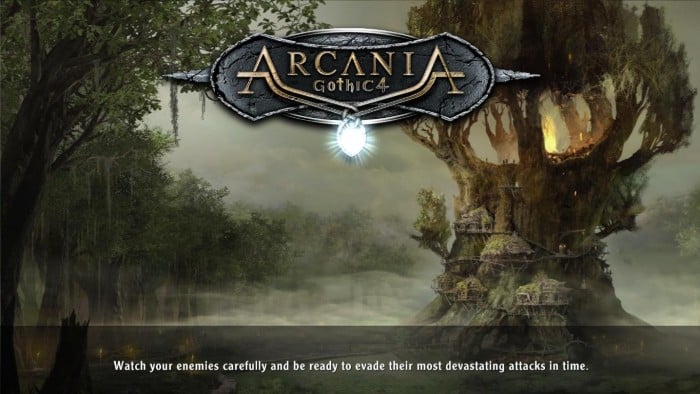

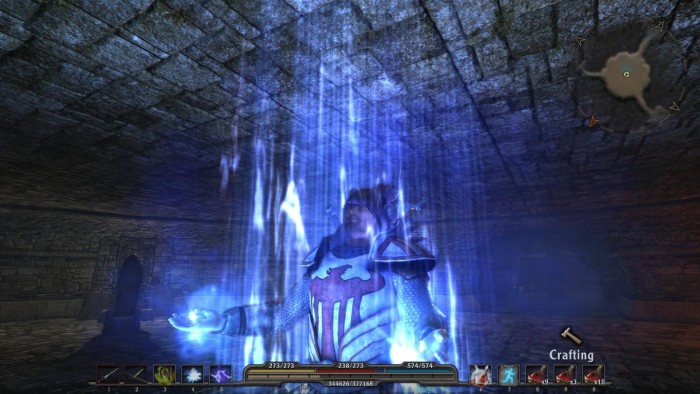
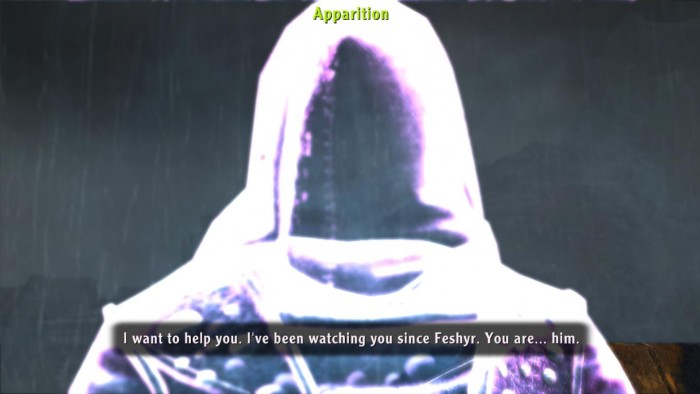
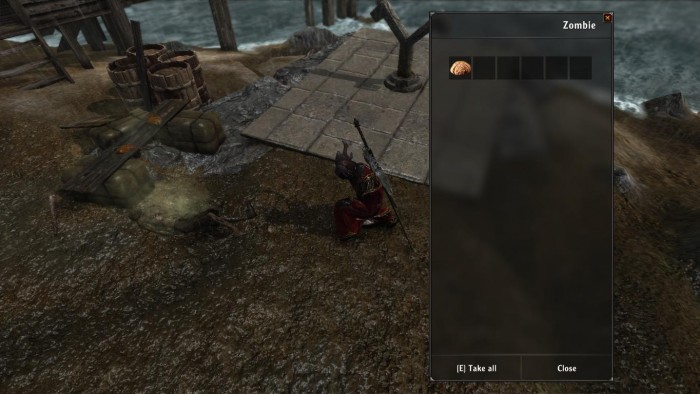
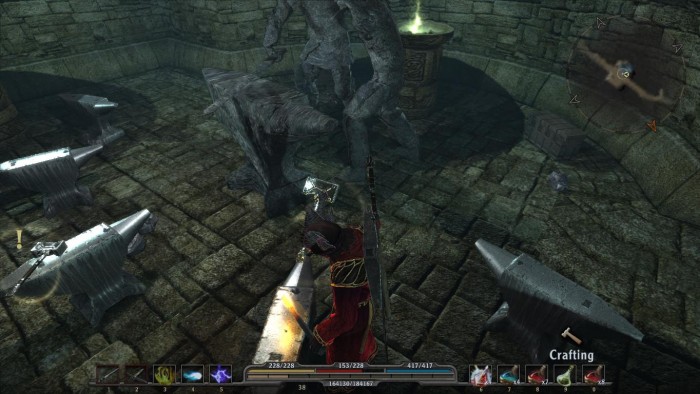
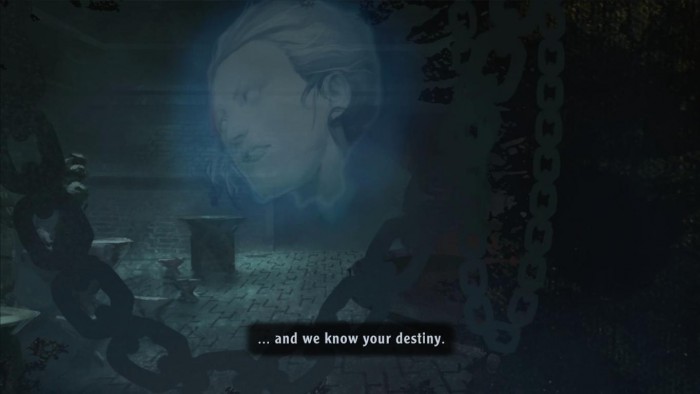
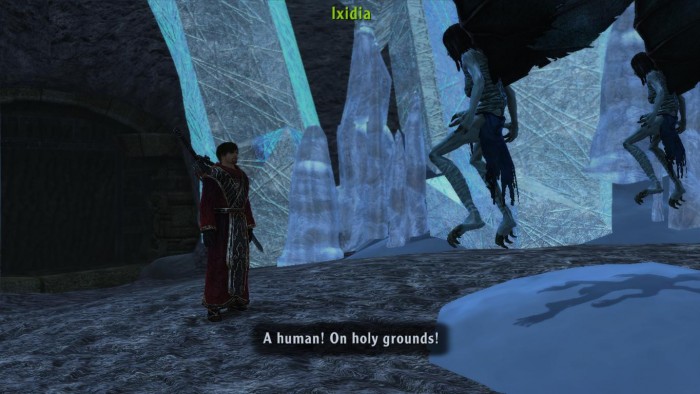
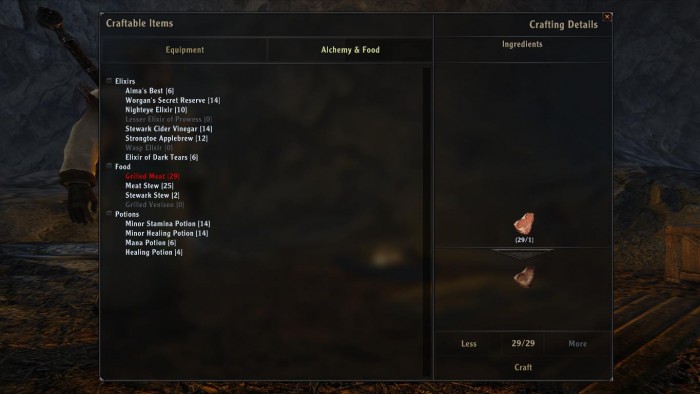
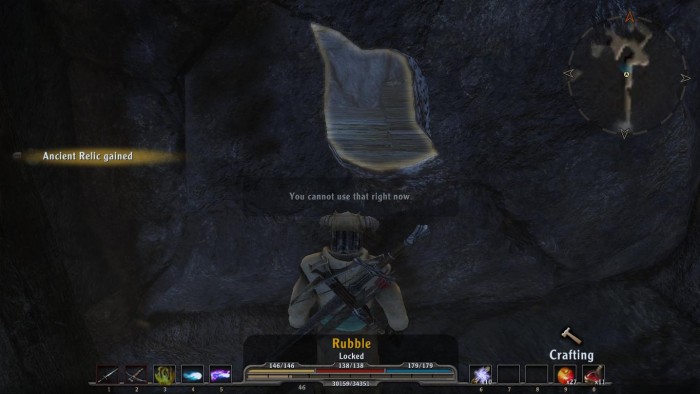
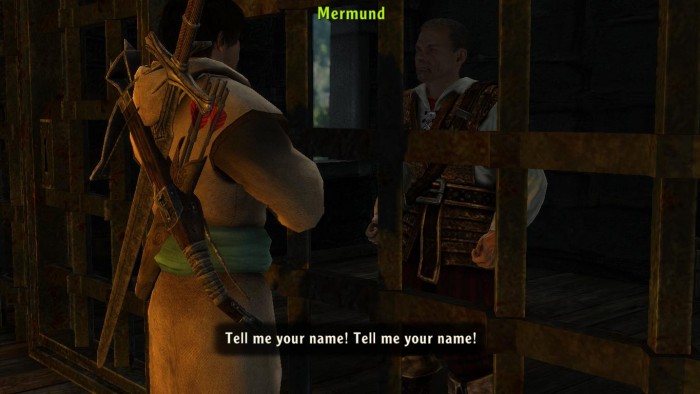
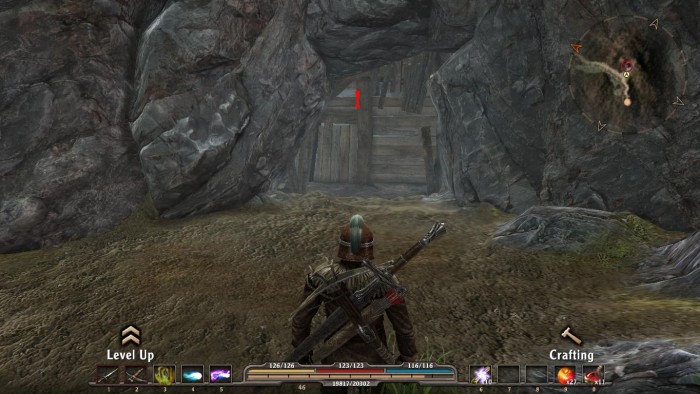
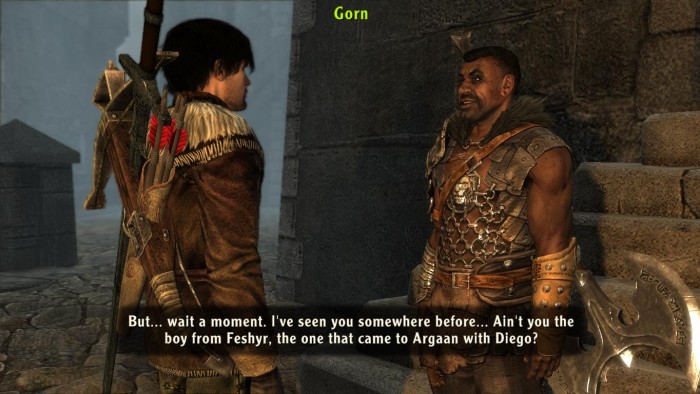
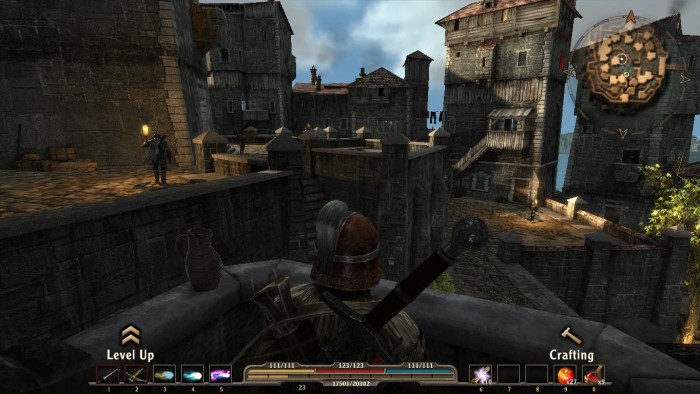
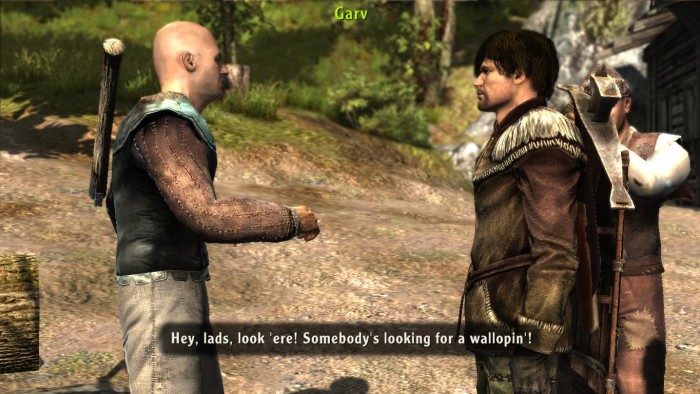
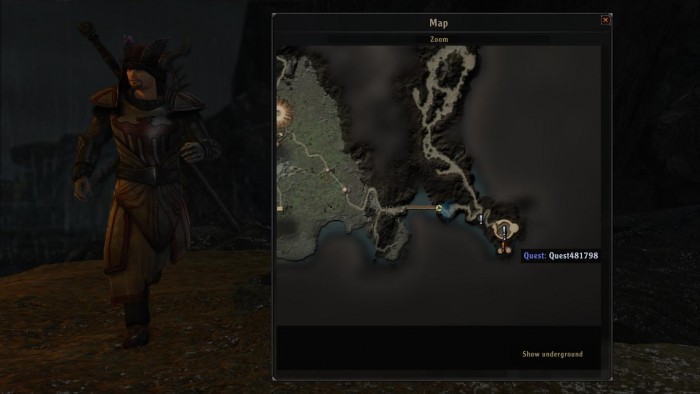
RT @geardiarysite: PC/XBOX360 Game Review: ArcaniA: Gothic 4 http://bit.ly/cPoap5